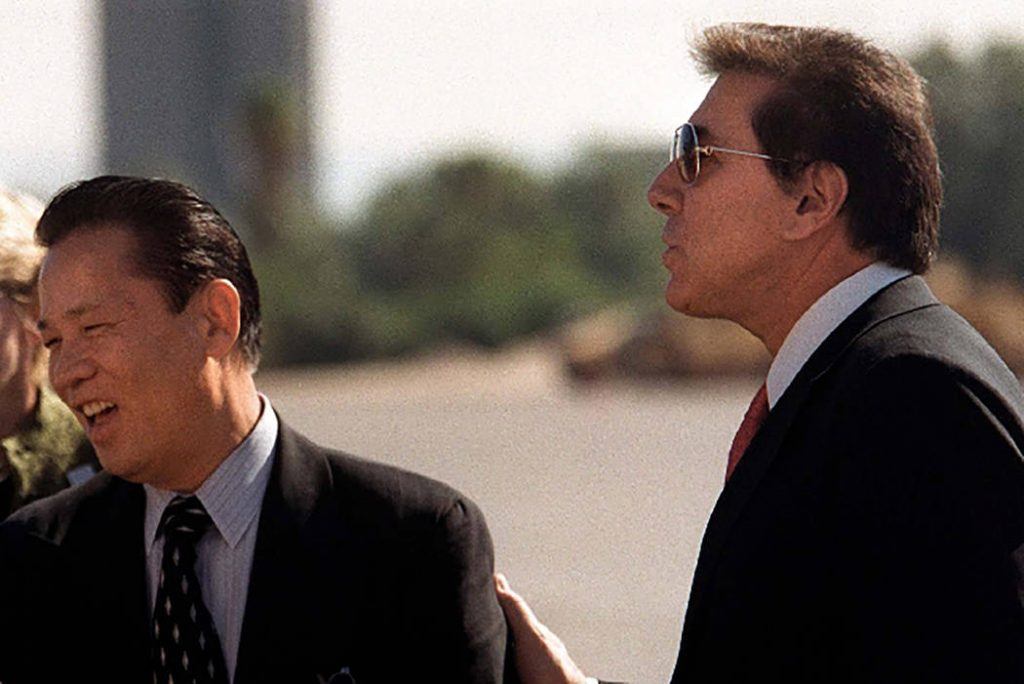Steve Wynn Triumphs in Court Decision in Kazuo Okada Dispute, Won’t Be Forced to Turn Over Documents
Posted on: July 28, 2017, 08:45h.
Last updated on: July 28, 2017, 08:53h.
Steve Wynn is breathing a little easier today. A Nevada Supreme Court decision reached on Thursday means Wynn Resorts won’t have to produce legal documents showing the process it took to remove former majority shareholder and ex-friend Kazuo Okada from the company’s board of directors in 2012. Okada had filed a lawsuit demanding that information.

It was seven years ago that Wynn decided to sever ties with his longtime cohort, after allegations arose that the Japanese billionaire was paying bribes to gaming regulators in the Philippines. At the time, the FBI was investigating whether a $40 million payment to a consultant in Manila was actually a kickback to Filipino officials in a push to gain favor with his $2.4 billion casino resort.
Wynn Resorts ultimately decided to end its relationship, and redeemed all of Okada’s shares, which at the time were valued at $1.9 billion. Okada has since challenged the decision in what’s become a long and drawn-out legal battle.
The Nevada Supreme Court decision reached unanimously this week cited attorney-client privilege that protect Wynn Resorts from disclosing the grounds it used to oust Okada.
Negative Media
According to investment research and management firm Morningstar, Wynn Resorts’ ongoing legal fight with Okada might hamper the company’s chances at entering the Japanese integrated casino resort market.
“While Wynn Resorts has a successful track record of constructing and operating luxury resorts, its involvement with bribery litigation, along with its weaker MICE (Meetings, Incentives, Conventions and Exhibitions) and balance sheet position relative to MGM and Sands, leads us to believe that the company is unlikely to receive one of the two urban gaming concessions in Osaka and Yokohama,” Morningstar wrote in a report, sections of which were published by the Las Vegas Review-Journal earlier this month, after meeting with numerous Japanese experts directly involved in the selection process.
With Japan currently settling on its regulatory framework for the gaming industry, all major casino operators are focused on landing building rights.
The National Diet is set to provide final details later this year on two multibillion-dollar resorts. Wynn Resorts, in addition to Las Vegas Sands, MGM, Caesars, and Hard Rock are just a few of the US-based companies expected to bid.
Further complicating matters is a recent corruption scandal involving Prime Minister Shinzo Abe, one of the key proponents of putting casinos on Japanese soil. Ironically, the alleged misconduct swirls around campaign donations from friends to Abe that could appear to be bribes.
Okada Short Millions
Okada’s decision to maintain his position that his stake in Wynn Resorts was unlawfully terminated is most likely due to the valuation of what he would today hold in the publicly traded corporation.
In February of 2012, when Wynn Resorts bought back his shares for $1.9 billion, the company was trading for about $115 per share. Two years later, the company soared to over $220. It’s since retracted to $128 as of July 27.
But the difference between Wynn Resorts’ stock price in February 2012 and July 2017 is still more than 11 percent. And when dealing with a number as large as $1.9 billion, 11 percent is more than most people make in their lifetimes.
Okada’s stake in Wynn, had he not touched it, would be worth about $209 million more than the $1.9 billion he received.
The Wynn dispute hasn’t been Okada’s only headache, either. Earlier this year, Okada was removed as chairman of Universal Entertainment, the company he founded in 1969, after he allegedly made a $17.3 million transaction with company money to an entity reportedly owned by himself and his son.
Okada is now suing his two children and his own wife to regain control of Universal Entertainment’s Okada Holdings, the company’s corporate parent. Universal is a manufacturing company the Japanese business magnate created in 1969, which specializes in pachinko and slots equipment for casinos.
No comments yet